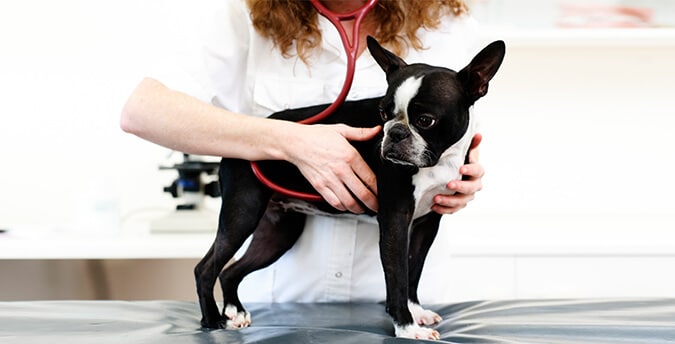Can Dogs Have Heart Attacks?

Dogs are living beings. Therefore, they risk exposure to health issues like tick-bite fever, rabies, colds, kennel cough, and other nasty viruses and bacterial infections. However, the last thing you may expect your dog to experience is a heart attack–after all, isn’t that a human health disorder?
Dogs can have heart attacks. While it’s not a common issue that veterinarians encounter, it can happen. Heart attacks occur when blood does not reach the heart muscle due to blocked arteries. In the absence of nutrients and oxygen, the heart begins to malfunction. If left untreated, the dog starts to tire and lose consciousness as the heart attack leads to cardiac arrest.
Although rare, canine heart attacks happen in every breed. Congenital heart abnormalities and genetic predispositions are primary risk factors.
HEART ATTACK SYMPTOMS IN DOGS
Unfortunately, signs of a heart attack occur suddenly in dogs. Your canine friend has no means of telling you they’re feeling unwell. It’s common for dogs experiencing a heart attack to collapse suddenly without warning.
Other symptoms that may occur before collapse include:
- Irregular panting
- Vomiting
- Low energy
- Head tilting
- Seizure
- Confusion and anxiety
- Immobility
Sudden death is always a risk with canine heart attacks. However, if you manage to recognize that your dog is feeling unwell and get them to the vet in time, you may be able to prevent or minimize the damage caused by this terrible cardiac event.
CAUSES OF CANINE HEART ATTACKS
What causes heart attacks in dogs? With humans, it’s typically an elevation in LDL cholesterol that leads to blocking of blood flow through the arteries. However, dogs don’t seem to suffer from coronary artery disease in the same manner as humans.
- Tumors are the leading cause of heart attack in dogs. The abnormality grows in an area surrounding the heart, disrupting blood flow.
- Nephrotic Syndrome affects a dog’s kidneys, resulting in blood clots that block blood flow in the arteries.
- Hypothyroidism occurs when the thyroid gland becomes inefficient at producing thyroid hormones. This condition may lead to coronary artery disease.
- Bacterial infections can also create inflammation in the airways and pulmonary arteries that can lead to vasculitis and cardiac arrest.
DIAGNOSING A HEART ATTACK IN YOUR DOG
If you notice any of the symptoms of heart attack in your pooch, don’t panic. Your dog feels your emotions, and they know something is wrong. This anxiety furthers the onset of the symptoms and accelerates the progression of the condition.
Wrap them in a blanket, speak to them softly, and then rush off to the vet. Don’t attempt CPR on your dog. Dogs’ lungs are smaller than humans, and you may end up injuring your pooch further. Pets in pain can become aggressive as a means of self-defense. Keep your children away from the dog and don’t let them come to the vet.
Try to recall the behavior of your dog surrounding the few hours before you noticed the symptoms first occur. Conditions such as bloating can also lead to cardiac arrest. Bloating comes from overeating or eating food too fast.
The vet will listen to your dog’s heart for any signs of abnormal pulse or murmurs, as well as arrhythmia (erratic beating). The vet may use an EKG to determine the heart function of your dog, as well as a complete blood cell count to look for signs of infection.
If your dog pulls out of the heart attack, you’ll be able to take them home in most cases. An EKG monitor strapped to their chest helps your vet monitor their condition over the weeks ahead. A chest x-ray helps the vet determine any blockages in the arteries.
TREATING YOUR DOG FOR A HEART ATTACK
Treatment of heart attack depends on the extent of the condition in your dog. Some heart attacks are mild, and the chances of your dog pulling through the event are reasonably good. However, you’ll need to monitor their behavior over the coming weeks.
Your vet may prescribe medications to improve blood flow and relieve the symptoms of hormonal disorders such as thyroid dysfunction. In some rare circumstances, the vet may need to hospitalize your dog for observation.
THE FINAL THOUGHT – LIFESTYLE ADJUSTMENTS
Examine the type of food you’re feeding your furry friend. Is their nutrition optimal for their needs? Does your dog keep active or do they lie around the house all day? Dogs need exercise as well, so take them for a walk two or three times a week. The health of your dog determines their longevity. Make sure you’re doing everything you can to help your pooch have a happy and healthy life.
